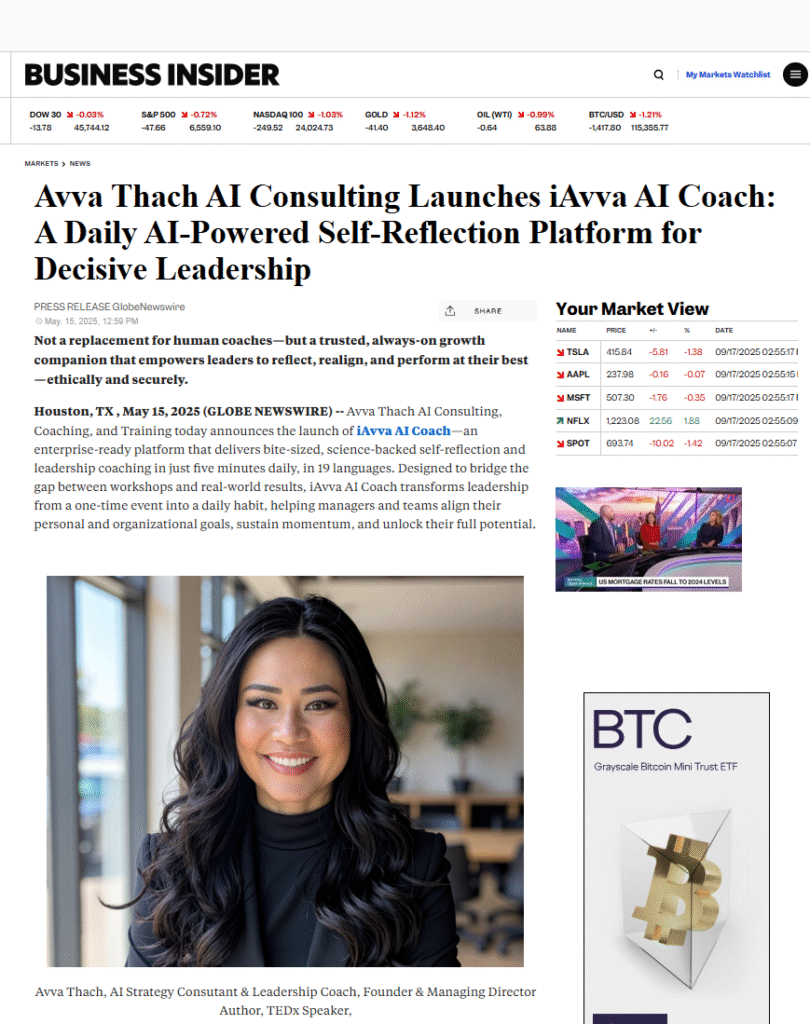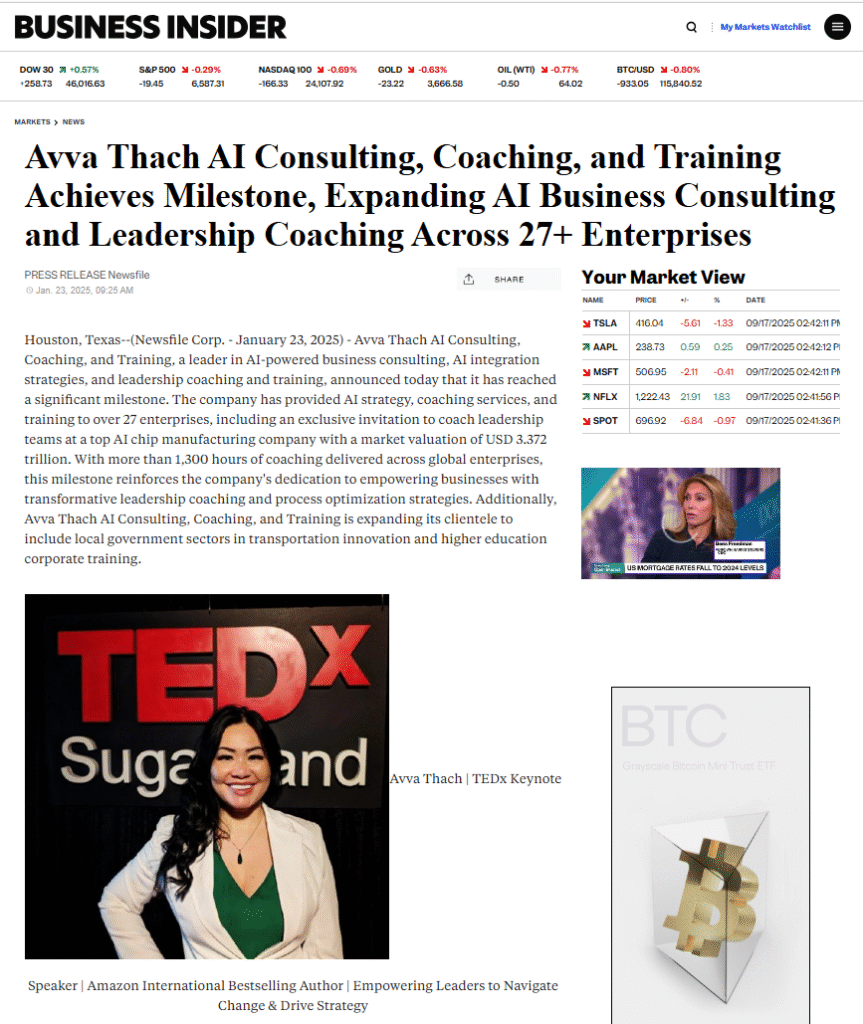Leadership Coaching vs. Executive Mentoring: What’s the Difference?
Introduction
Welcome to the ultimate showdown: Leadership Coaching vs. Executive Mentoring. It’s like Batman vs. Superman, but instead of capes and superpowers, we’re talking about skills that can transform your career and organization. If you’re a Senior Vice President of HR or Learning and Development, you’re likely already familiar with the buzz around leadership mentoring and its cousin, coaching. But what’s the real difference? Grab your popcorn; we’re diving into this epic battle.
At first glance, both leadership coaching and executive mentoring may seem like two sides of the same coin. They both aim to enhance leadership skills, boost performance, and foster professional growth. However, they each have unique methodologies and outcomes that can significantly impact your organization’s success.
Key Takeaway: Understanding the differences between leadership coaching and executive mentoring is crucial for effective leadership development. Each approach serves distinct purposes in nurturing talent.
So why should you care? The landscape of business mentoring is evolving rapidly, especially in 2025, as organizations increasingly recognize the importance of tailored strategies for career development mentoring. Whether you’re considering a new mentorship program or refining existing ones, knowing how to leverage these two approaches can lead to remarkable results.
This post will break down:
- The definition of Leadership Coaching.
- The definition of Executive Mentoring.
- The importance of understanding these differences for strategic leadership development.
Buckle up as we explore how each method contributes to building leadership capabilities, enhancing team dynamics, and ultimately driving organizational success!

Overview of Leadership Coaching
Leadership coaching is like having a personal trainer for your career-except instead of dumbbells, you’re lifting leadership skills! This dynamic process focuses on enhancing an individual’s ability to lead effectively, navigate challenges, and inspire teams. Unlike executive mentoring, which often involves sharing wisdom and experiences from a seasoned professional, leadership coaching is more about structured skill-building and actionable strategies.
The goal? To foster transformational leadership that not only drives personal growth but also propels organizational success. Think of it as the difference between being a good player on a team and becoming the captain who leads the team to victory. In 2025, as businesses evolve with rapid technological changes, effective leadership coaching will be crucial for developing leaders who can adapt swiftly.
Key Point: Leadership coaching emphasizes skill enhancement through tailored strategies that align with organizational goals.
Goals and Objectives
The primary aim of leadership coaching is to unlock potential. Here are some specific goals:
- Enhance leadership skills: Develop effective communication, decision-making, and conflict resolution skills.
- Boost performance: Set measurable objectives that align with both individual aspirations and organizational targets.
- Foster self-awareness: Encourage leaders to reflect on their strengths and areas for improvement.
- Support strategic thinking: Equip leaders with tools for innovative problem-solving and strategic planning.
Target Audience
The beauty of leadership coaching is its versatility. It caters to various individuals within an organization:
- Emerging leaders: Those stepping into leadership roles can benefit immensely from foundational skills training.
- Mid-level managers: Professionals looking to enhance their team management capabilities and drive performance.
- Senior executives: Even seasoned leaders can find value in refining their approach to transformational leadership.
Typical Structure and Duration
A typical leadership coaching program varies in structure but often includes:
- Initial assessment: Understanding the coachee’s current skills and areas for development through surveys or interviews.
- Goal setting sessions: Collaboratively defining clear objectives tailored to both personal aspirations and business needs.
- Cyclic coaching sessions: Regular meetings (often bi-weekly or monthly) focused on progress tracking, feedback, and strategy adjustments over a period of 6-12 months.
Key Benefits for Organizations
The impact of effective leadership coaching extends beyond individual growth-it translates into organizational success!
| Benefit | Description |
|---|---|
| Improved team dynamics | A well-coached leader creates a positive culture that enhances collaboration among team members. |
| Increased retention rates | A focus on personal development leads to higher job satisfaction and lower turnover rates among top talent. |
| Enhanced innovation capacity | Cultivating strategic thinkers promotes creative solutions that drive business growth. |
| Effective succession planning | A robust pipeline of skilled leaders ensures continuity in organizational vision during transitions. |
If you’re looking to supercharge your organization’s leadership development, investing in tailored coaching programs is a game-changer. Remember, the future belongs to those who prepare today!
Your Next Step: Consider how implementing leadership workshops, corporate mentoring programs, or partnering with a mentor for leaders could elevate your workforce’s potential!

Overview of Executive Mentoring
Executive mentoring is like having a wise Yoda guiding you through the galaxy of leadership challenges. This relationship focuses on personal development in leadership, where seasoned professionals share their insights and experiences with emerging leaders. Unlike leadership coaching, which is structured and skill-focused, executive mentoring is more about fostering a deep connection that encourages professional growth and strategic leadership development.
The primary goal? To cultivate leaders who are not only equipped with the right skills but also possess the vision and emotional intelligence to drive organizational success. Think of it as nurturing a seed into a flourishing tree-one that can withstand storms and provide shade for future leaders. As we progress through 2025, organizations are increasingly recognizing the value of this mentorship approach in succession planning mentoring and talent management.
Key Point: Executive mentoring emphasizes personal connections and shared experiences to enhance leadership capabilities within an organization.
Goals and Objectives
The overarching aim of executive mentoring is to guide individuals toward their full potential. Here are some specific goals:
- Develop strategic thinking: Encourage mentees to think critically about business challenges and opportunities.
- Enhance leadership skills: Focus on effective communication, conflict resolution, and team leadership skills.
- Facilitate career progression: Help mentees navigate their career paths through guidance on goal setting and achievement in leadership roles.
- Build confidence: Foster self-assurance in decision-making processes by sharing real-world experiences.
Target Audience
The beauty of executive mentoring lies in its adaptability. It serves various individuals at different stages of their careers:
- High-potential leaders: Emerging talents identified for future leadership roles can greatly benefit from mentorship.
- Senior executives: Even established leaders can gain fresh perspectives from mentors who challenge their thinking.
- Mid-level managers: Those seeking guidance on navigating complex organizational dynamics will find value in mentorship relationships.
Typical Structure and Duration
An executive mentoring program usually follows a flexible structure but often includes:
- Mentee assessment: Understanding the mentee’s current position, aspirations, and challenges through discussions or surveys.
- Goal alignment sessions: Collaboratively defining objectives that reflect both personal ambitions and organizational needs.
- Cyclic meetings: Regular check-ins (monthly or quarterly) focused on progress evaluation, feedback exchange, and strategy refinement over a period of 6-12 months or more.
Key Benefits for Organizations
The positive impact of effective executive mentoring reaches far beyond individual growth-it enhances overall organizational performance!
| Benefit | Description |
|---|---|
| Stronger leadership pipeline | A robust mentorship program develops future leaders who are ready to step into key roles when needed. |
| Enhanced employee engagement | Mentees often report higher job satisfaction due to the support received from mentors, leading to better retention rates. |
| Increased innovation capacity | Mentorship fosters an environment where creative ideas can flourish through shared insights between mentors and mentees. |
If you want to elevate your organization’s leadership development, investing in tailored executive mentoring programs is essential. Remember, strong leaders don’t just emerge; they are cultivated!
Your Next Step: Explore how implementing mentorship programs, engaging in peer mentoring for leaders, or collaborating with New Zealand-based mentors could transform your workforce!

Key Differences Between Leadership Coaching and Executive Mentoring
Alright, folks, let’s break down the nitty-gritty of leadership mentoring versus leadership coaching. While both are designed to enhance leadership skills, they operate on different wavelengths. Think of it like comparing a GPS navigation system to a travel guide: one helps you find the fastest route, while the other enriches your journey with stories and insights.
Key Point: Understanding these differences can aid in selecting the right approach for leadership development initiatives.
Focus Areas: Development vs. Guidance
The primary difference lies in focus. Leadership coaching is all about structured skill enhancement. Coaches work with individuals to develop specific competencies necessary for effective leadership. On the flip side, executive mentoring leans heavily on guidance and shared experiences. Mentors provide insights drawn from their own journeys, helping mentees navigate their unique paths.
- Leadership Coaching:
- Skill Development: Focuses on building specific leadership skills through actionable strategies.
- Structured Approach: Often follows a formalized process with set goals and metrics.
- Executive Mentoring:
- Guidance and Insight: Provides wisdom from personal experiences and lessons learned.
- Informal Structure: More flexible in nature, often evolving based on the relationship between mentor and mentee.
Duration and Commitment Levels
The commitment levels also vary significantly between these two approaches. Leadership coaching typically requires a more intensive time investment over a defined period. Programs usually span several months with regular sessions to ensure progress tracking. Conversely, executive mentoring tends to be more informal and may continue as long as both parties find value in it.
| Aspect | Leadership Coaching | Executive Mentoring |
|---|---|---|
| Duration | 6-12 months or longer, with regular sessions. | Flexible duration based on mutual agreement. |
| Commitment Level | High commitment required for structured progress. | Lower commitment; can be more casual and organic. |
Relationship Dynamics: Coach vs. Mentor Role
The dynamics of the relationship also differ significantly. In leadership coaching, the coach assumes an active role in guiding the coachee towards specific goals. It’s akin to having a personal trainer who pushes you to lift heavier weights! Meanwhile, in executive mentoring, the mentor acts more like a trusted advisor or friend, offering support while allowing mentees to chart their own course.
- Coaching Relationship: A structured partnership where accountability is key.
- Mentoring Relationship:A supportive alliance that fosters open dialogue and reflection.
Tactics and Tools Used in Each Approach
The tools employed by coaches versus mentors also vary widely. Coaches often utilize assessments, feedback mechanisms, and performance metrics to track progress effectively. In contrast, mentors draw upon anecdotal experiences and informal discussions that can lead to profound insights-think of it as learning from someone who has already walked the path you’re about to take!
- Tactics Used in Coaching: Cohort workshops, 360-degree feedback tools, and goal-setting frameworks.
- Tactics Used in Mentoring: Candid conversations over coffee or lunch meetings that foster trust and vulnerability.
Your Next Step: If you’re looking to elevate your organization’s approach to leadership development, consider integrating both coaching and mentoring to create a comprehensive strategy that drives results.

The Role of Leadership Mentoring in Organizational Development
When it comes to organizational development, leadership mentoring plays a pivotal role-think of it as the secret sauce that elevates an organization from good to great. It’s not just about imparting wisdom; it’s about fostering growth, nurturing talent, and creating a culture where leaders thrive. In this section, we’ll explore how effective leadership mentoring can shape the future of your organization.
The Impact on Talent Retention and Growth
In today’s competitive landscape, retaining top talent is more critical than ever. Organizations that invest in leadership mentoring see a significant boost in employee satisfaction and retention rates. Here’s how:
- Personalized Development: Mentorship programs tailored to individual needs help employees feel valued and understood.
- Career Progression: By providing guidance on career paths, mentors can help mentees navigate their growth within the company.
- Increased Engagement: Engaged employees are less likely to leave; mentorship fosters a sense of belonging and purpose.
Key Insight: Companies with robust mentorship programs experience up to a 50% increase in employee retention rates (source: Gallup).
Cultivating a Culture of Continuous Learning
A culture that embraces continuous learning is essential for organizational success. Leadership mentoring contributes to this culture by:
- Encouraging Open Communication: Mentors create safe spaces for dialogue, allowing mentees to ask questions and seek feedback.
- Fostering Innovation: A learning mindset encourages experimentation and creative problem-solving among teams.
- Promoting Knowledge Sharing: Mentors pass down valuable insights and experiences, enriching the collective knowledge base of the organization.
This commitment to learning leads to enhanced leadership skills, ensuring that leaders are well-equipped to tackle challenges head-on.
The Synergy Between Coaching and Mentoring Programs
The magic happens when organizations integrate both leadership coaching and executive mentoring. This synergy creates a comprehensive development strategy that addresses various aspects of leadership growth:
| Aspect | Leadership Coaching | Executive Mentoring |
|---|---|---|
| Focus Area | Skill Development: Structured skill enhancement through actionable strategies. | Guidance: Wisdom from experiences shared between mentor and mentee. |
| Duration & Commitment | Defined Period: Typically spans 6-12 months with regular sessions. | Flexible Duration: More casual with ongoing support as needed. |
This dynamic duo empowers leaders at all levels, from emerging talents seeking foundational skills to seasoned executives refining their strategic vision. The result? A well-rounded leadership pipeline ready to meet future challenges!
Your Next Move: If you want your organization to flourish, consider enhancing your existing mentorship programs or implementing new ones tailored for high-potential leadership programs. The future is bright when you invest in your leaders!
Selecting the Right Approach for Your Organization
When it comes to choosing between leadership mentoring and executive mentoring, it’s a bit like picking a favorite child-each has its unique strengths and contributions to your organization. The key is understanding your specific needs and goals. So, let’s dive into two critical aspects that will help you make this decision: assessing organizational needs and cultural considerations.
Assessing Organizational Needs and Goals
Before you can choose the right approach, you need to get a clear picture of your organization’s current landscape. Here’s how:
- Identify Leadership Gaps: Conduct assessments to pinpoint where your leaders are excelling and where they may require additional support. Are they struggling with strategic thinking? Or do they need help with effective communication in leadership mentorships?
- Align Objectives: Determine the specific outcomes you want to achieve from your mentoring or coaching initiatives. Are you seeking to develop your team leadership skills? Or perhaps you’re focused on succession planning and mentoring to ensure a robust leadership pipeline?
- Evaluate Current Programs: Assess existing mentorship programs. What’s working? What isn’t? This evaluation can guide whether to enhance current efforts or start anew.
Key Insight: Organizations that align their mentoring strategies with specific developmental goals see up to 70% improvement in leadership effectiveness (source: Deloitte).
Once you’ve assessed your organizational needs, it’s time to think about cultural fit.
Cultural Considerations in Choosing an Approach
Your organization’s culture plays a pivotal role in determining whether leadership coaching or executive mentoring is the better fit. Here are some factors to consider:
- Openness to Feedback: If your culture encourages candid conversations and constructive criticism, leadership coaching could thrive here. On the other hand, if employees value storytelling and personal experiences, executive mentoring might resonate better.
- Desire for Structure vs. Flexibility: Leadership coaching often follows a structured program with defined outcomes, ideal for organizations that appreciate clear direction. Conversely, if your environment thrives on adaptability, the flexible nature of executive mentoring may be more suitable.
- Commitment Level: Consider the amount of time leaders can dedicate to these initiatives. Coaching requires a more formal commitment, whereas mentoring can evolve organically based on the relationships.
Your Next Move: Assessing both organizational needs and cultural compatibility will enable you to create tailored approaches that maximize the impact of leadership development.
The bottom line? Selecting the right approach isn’t merely about choosing between two popular terms; it’s about strategically aligning these methodologies with your organization’s unique context and aspirations. Once you’ve made this crucial decision, you’re well on your way to cultivating capable leaders who can navigate the complexities of modern business!
Conclusion and Key Takeaways
As we conclude our examination of leadership coaching versus executive mentoring, it’s clear that both approaches play a vital role in developing effective leaders. While they may seem like two peas in a pod, they each bring unique flavors to the table, much like a perfectly balanced meal. So, what’s the takeaway from this culinary journey of leadership development?
Key Insight: Understanding the distinct roles of leadership coaching and executive mentoring can significantly enhance your organization’s leadership development strategies.
Synthesizing Insights on Coaching vs. Mentoring
To put it simply:
- Leadership Coaching: This is your go-to for structured skill enhancement. It’s about honing specific competencies and driving measurable results.
- Executive Mentoring: Think of this as the wisdom-sharing session where seasoned leaders guide their less experienced counterparts through personal experiences.
The future of leadership mentoring lies in its ability to adapt to the evolving needs of organizations. As we move further into 2025, integrating both methods will be crucial for fostering resilient leaders who can navigate complexities with confidence.
The Future of Leadership Development in the Age of AI
In an era increasingly influenced by AI and technological advancements, the relevance of tailored mentorship programs will only grow. Here are some trends to keep an eye on:
- Data-Driven Insights: Organizations will leverage data analytics to personalize coaching and mentoring experiences, ensuring they meet individual and organizational needs.
- Cross-Cultural Leadership Training: As businesses become more global, understanding diverse perspectives through mentorship will be essential for effective leadership.
- Dynamic Team Building: Expect more organizations to focus on team-oriented coaching that encourages collaboration and innovation across departments.
A final thought: while both coaching and mentoring have their unique strengths, combining them could lead to innovative leadership solutions that drive organizational success. So whether you’re nurturing emerging leaders or refining seasoned executives, integrating these approaches could be your secret weapon for achieving exceptional results!
Your Next Step: Assess your organization’s current leadership development initiatives and consider how you can blend both coaching and mentoring to create a robust framework that fosters growth!














Leave a Reply